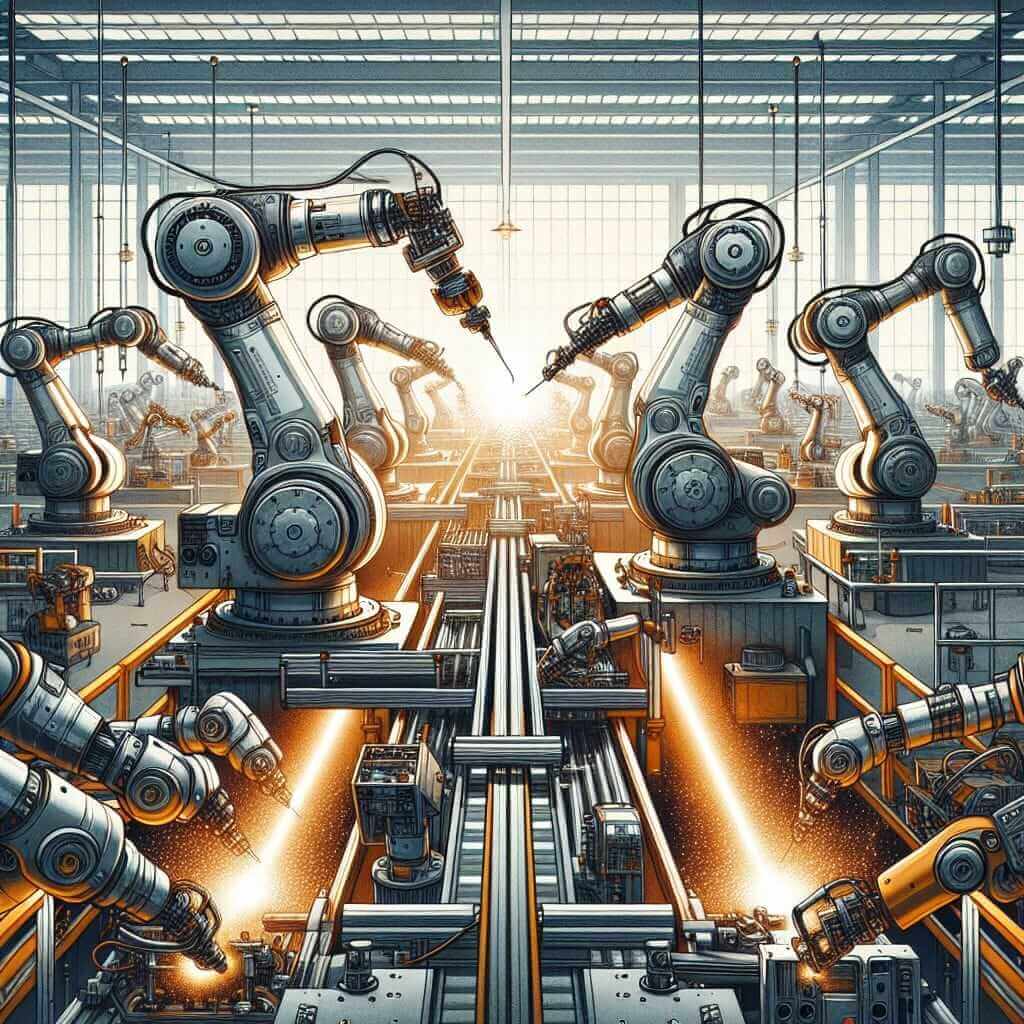The IELTS Reading test challenges candidates with a variety of texts and topics. One recurring theme in recent IELTS exams is the “Economic impacts of automation on manufacturing.” Given its relevance and interconnected nature with other economic and technological issues, it is vital for IELTS candidates to become familiar with this topic. This overview will help you understand the common themes and vocabulary related to this subject, as well as provide a mock IELTS Reading test for practice.
Reading Test: Economic Impacts of Automation on Manufacturing
The subject of automation in manufacturing has garnered substantial attention in the economic sector. Familiarize yourself with the intricacies of automation, its economic impacts, and how it has reshaped the manufacturing landscape worldwide.
Mock Reading Passage
Economic Impacts of Automation on Manufacturing
The advent of automation has significantly influenced the manufacturing industry, reshaping various aspects from productivity to employment. Automation technologies, such as robotics, AI, and advanced manufacturing systems, have revolutionized the production processes, enabling higher efficiency and precision.
Historically, manufacturing has been labor-intensive, relying heavily on human effort. However, with the introduction of automation, machines now perform tasks that were once manual, leading to increased production speeds and reduced errors. This shift has bolstered economic growth by lowering production costs, enhancing product quality, and increasing output.
Despite these advantages, automation has also prompted concerns regarding employment. While some argue that automation creates new job opportunities in tech and maintenance, others worry about significant job displacement. For instance, the rise of automated assembly lines has reduced demand for manual labor, causing unemployment rates to surge in certain regions.
Moreover, automation’s economic impact varies globally. Developed countries with advanced technology infrastructures benefit more significantly by upgrading to automated systems. Conversely, developing nations might struggle with the financial investment required for such transitions, potentially widening the economic gap.
In conclusion, while automation undeniably enhances production efficiency and economic growth, it also poses challenges, especially in the labor market. Balancing these two aspects is crucial for sustainable economic development in the manufacturing sector.

Reading Questions
True/False/Not Given
- Automation has completely replaced human labor in the manufacturing industry.
- The economic benefits of automation are uniform across all countries.
- Automation technologies include robotics and AI.
Multiple Choice
-
What is one of the main benefits of automation in manufacturing?
a. Increased production costs
b. Enhanced product quality
c. Reduced production speeds
d. Increase in manual labor demand -
Which sector experiences job creativity due to automation?
a. Manual labor
b. Maintenance and technology
c. Administrative roles
d. Healthcare
Matching Information
Match the following statements to the paragraphs in the passage:
- Automation’s global economic impact variation
- Historical reliance on manual labor in manufacturing
- Employment concerns due to automation
Answer Keys and Explanations
True/False/Not Given
- False – The passage states that automation has taken over many tasks but does not claim complete replacement.
- False – The text highlights that the economic benefits vary significantly between developed and developing countries.
- True – The passage mentions robotics and AI as part of automation technologies.
Multiple Choice
- b. Enhanced product quality – The passage mentions that automation leads to better product quality.
- b. Maintenance and technology – It discusses the creation of tech and maintenance jobs.
Matching Information
- Paragraph 4 – Discusses global variations in the economic impact of automation.
- Paragraph 2 – Talks about the historical dependency on manual labor in manufacturing.
- Paragraph 3 – Highlights concerns about employment caused by automation.
Common Mistakes in IELTS Reading
- Misinterpreting Information: Candidates often misread or misinterpret key details. Always read carefully and ensure understanding.
- Skimming vs. Scanning: Use skimming for a general idea and scanning for finding specific pieces of information.
- Time Management: Allocate your time effectively. Spend the initial few minutes assessing the passage and questions.
Vocabulary
- Automation (n): /ˌɔːtəˈmeɪʃən/ – the use of largely automatic equipment in a system of operation.
- Displacement (n): /dɪsˈpleɪsmənt/ – the change in position of something or someone.
- Infrastructure (n): /ˈɪnfrəˌstrʌktʃər/ – the basic physical and organizational structures needed for the operation of a society.
Grammar Focus
Relative Clauses: Used to add extra information about a noun without starting a new sentence, often beginning with who, which, where, when, whose:
- “Automation technologies, which include robotics and AI, have revolutionized the production processes.”
Conclusion
Preparing for the IELTS Reading test requires a combination of topic familiarity, vocabulary enhancement, and strategic practice. The topic “Economic impacts of automation on manufacturing” is both current and relevant. Engage with the provided passage and questions, analyze your performance, and refine your skills. Remember, consistent practice is key to achieving a high band score in IELTS Reading.
For further insights, consider exploring these related articles: Social Implications of Automation in the Workplace, Economic Impacts of Digital Transformation, and The Effects of Technological Change on Employment.